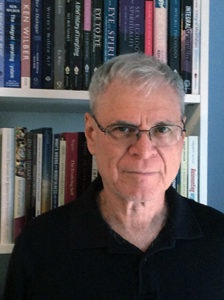Upcoming seminars - Spring 2025
1. Critical Realism - A Conversation with Professor Alpesh Maisuria
Abstract
Critical Realism is a broad movement within the philosophy of science. Its historical origins lie in the social and cultural upheavals of the post-WWII in the West, which saw science not only pushed in post-positivist directions but also pressed into the questioning of its traditional disciplinary boundaries. However, from these historical conditions of possibility, the unique path taken by critical realism flowed directly (but not exclusively) from the ground-breaking work of Roy Bhaskar and his bold revindication of ontology. For Bhaskar, the 'holy trinity' of critical realism (ontological realism, epistemic relativism, and judgemental rationality) made it possible for science to be an emancipatory force: to underlabour scientific practice so that it would (i) recognise and eliminate oppressive social relations and (ii) work to replace such relations with to enable humans to flourish.
In this presentation, Alpesh and Grant will provide an overview of the conceptual and ethical architecture of critical realism. The content will be delivered so that it will appeal to newcomers to critical realism, as well as to those already familiar with it. They will then discuss how they have used critical realism in their respective works and draw on examples from their recent co-edited book: Working with Critical Realism (Routledge, 2023). Finally, they will address the issue of where to now for critical realism/ists to facilitate a progressive historical moment in today's de-humanised world. In doing so, they will be inviting participants to join in on the conversation.
Speaker

Past Seminars: Critical Realism
Past Seminar Series: Mindfulness
- Mindfulness (-based Cognitive Therapy) for Life Ancient Wisdom meets Modern Psychology in the Contemporary World - Professor Willem Kuyken, University of Oxford
- Mindfulness as Political Object and Democratic Opportunity - Dr Will Leggett, University of Birmingham
- Critical Social Mindfulness: Foundations and Emergent Practices for a New Mindful Deal - Professor David Forbes, City University of New York




